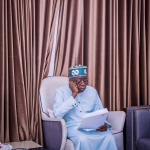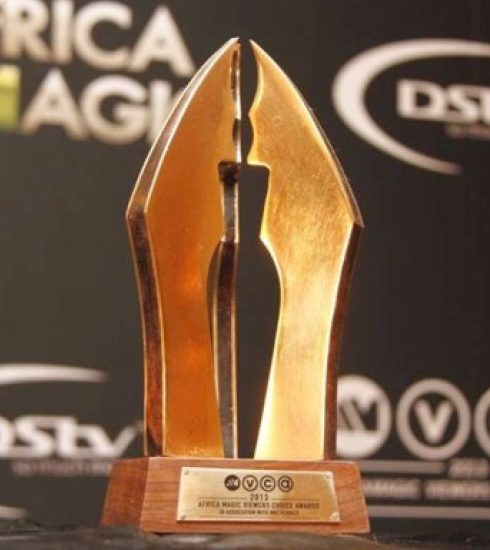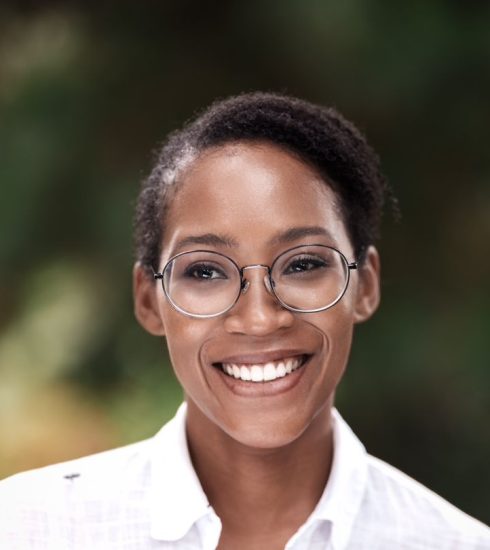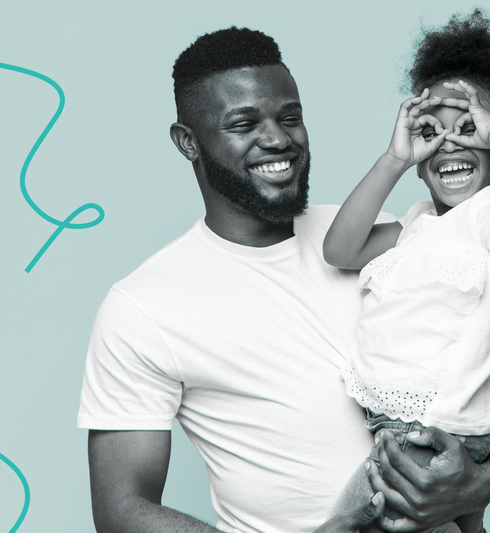Jimmy Odukoya’s Glorious Hollywood Debut
On several occasions, we have seen the meeting point of the American film industry, Hollywood, and African stories. Usually, when Hollywood directors tell African stories, whether fiction or based on true life events, they do with minimal involvement of the true owners of the stories, us.
Many things were gotten right in the new Hollywood blockbuster, The Woman King. However, one significant decision—and some might say the piece that completes the cinematic jigsaw—is the casting of sensational Nollywood actor, Jimmy Odukoya, as the ruler of the Oyo Empire, Oba Ade.
On the movie’s premiere day, DOWNTOWN’s Kehindé Fagbule met the man of the moment to discuss the emotions that came with sharing a set with legendary actress, Viola Davis, losing his step-mum at the same time he was announced as a cast member on the project, and going ahead to deliver a masterpiece in what was his Hollywood debut.
Congratulations on the movie.
Thank you. Thank you very much.
Amazing. How does it feel for you to be a part of something this big, a historical project?
I’m humbled. I’m thankful. I’m excited, nervous-excitement, but just thankful for God’s grace and the opportunity to do what I do, and given the opportunity to do it on this scale. It’s just humbling. So very, very thankful, honest, grateful.
You announced the big news of your casting in this movie a few hours after announcing the loss of your stepmother. How did that make you feel, considering you were mourning at the same time that you were celebrating?
So it was quite interesting because, at the time that I posted, I was already on set filming. And I was waiting for them to make the announcement. And so I couldn’t talk about it till they hadn’t made the announcement. And as you said, or as God would have it, the day they made the announcement was the exact same day that they had announced the passing of my stepmom.
So it was kind of bittersweet. I was getting people saying, ‘sorry for your loss and congratulations,’ literally. The scripture that came to mind is there was casting down, and now there’s a lifting up. And so, where the focus would
have been just, again, another loss for my family, people were forced by the news to have something to celebrate, and it was an interesting thing for me to see.
Obviously, because I was filming, I wasn’t around for the funeral and all of that. I remember dealing with that and then being able to compartmentalise because I still had to go shoot. So feeling guilty that I wasn’t around for the family and being there for my brothers and all of that, but knowing that I had to do this and them understanding why I couldn’t come home. So it was an interesting time, but I’m thankful for my family, and the support and bond we have.
You’ve been in the Nigerian film scene for six years. Talk us through your experience at that time.
You can’t talk about me and anything without the grace of God because the grace of God literally carried me. I was under this false notion that everybody’s experience was the same as mine until we started trading stories, and I’m like, ‘Oh, this isn’t that easy; people don’t have it as easy as I’ve had it and realised that God’s grace and God’s hand has just been there opening doors for me all through the time.
Because people would ask me, ‘who’s your plug?’ I’m like, ‘I don’t have a manager, I don’t have a plug, God is my plug.’ And so in six years, it’s being able to be a full-time actor as far as living and being able to take care of my family just by acting, because you hear people say you can’t be a Nollywood actor full-time, and I was.
So it’s been great for me and obviously to where I’m at now. So just nothing but thankfulness, and we’ve had tough times, long projects, tough projects, but I think it’s all part of it. Alongside being a full-time actor, you’re also a pastor.
Have you ever been given roles that challenge your beliefs as a Christian? How did you handle it?
I have been. There have been times when I’ve turned down certain roles and walked away from projects because they went against what I believed because I have set certain standards for myself. I remember there was one where they wanted me to play a particular African deity, and they were on my case for about a month. I couldn’t; it didn’t sit well with my spirit for me to represent another god that I felt was not my God. So it was tough, but I turned it down.
Another time, there was a sense of direction when I was asked to do something that I wasn’t willing to do, so, again,
I walked away because I have standards for myself. Because as a pastor and minister, there are certain lines that I will not cross, certain things that I will not do. So there’s been times when I’ve had to give certain roles up, but there’s nothing that you give up for God that He doesn’t give you back, case in point to where we’re at.
Because I remember when that particular project with an African deity came, I thought it was a big opportunity for my career, but it’s all good. And now I look back, and I’m thankful because He’s more than overcompensating.
It’s your Hollywood debut, your biggest project yet. Not many Nollywood actors make the leap to land big projects like this.
How does it feel working with such a star-studded cast?
To be part of this project, a Hollywood project, I’ve been blessed because I came in at the highest level of Hollywood motion studio box office picture. This is not some little short film or something that a lot of times people put foreign-looking people with white people and call it Hollywood.
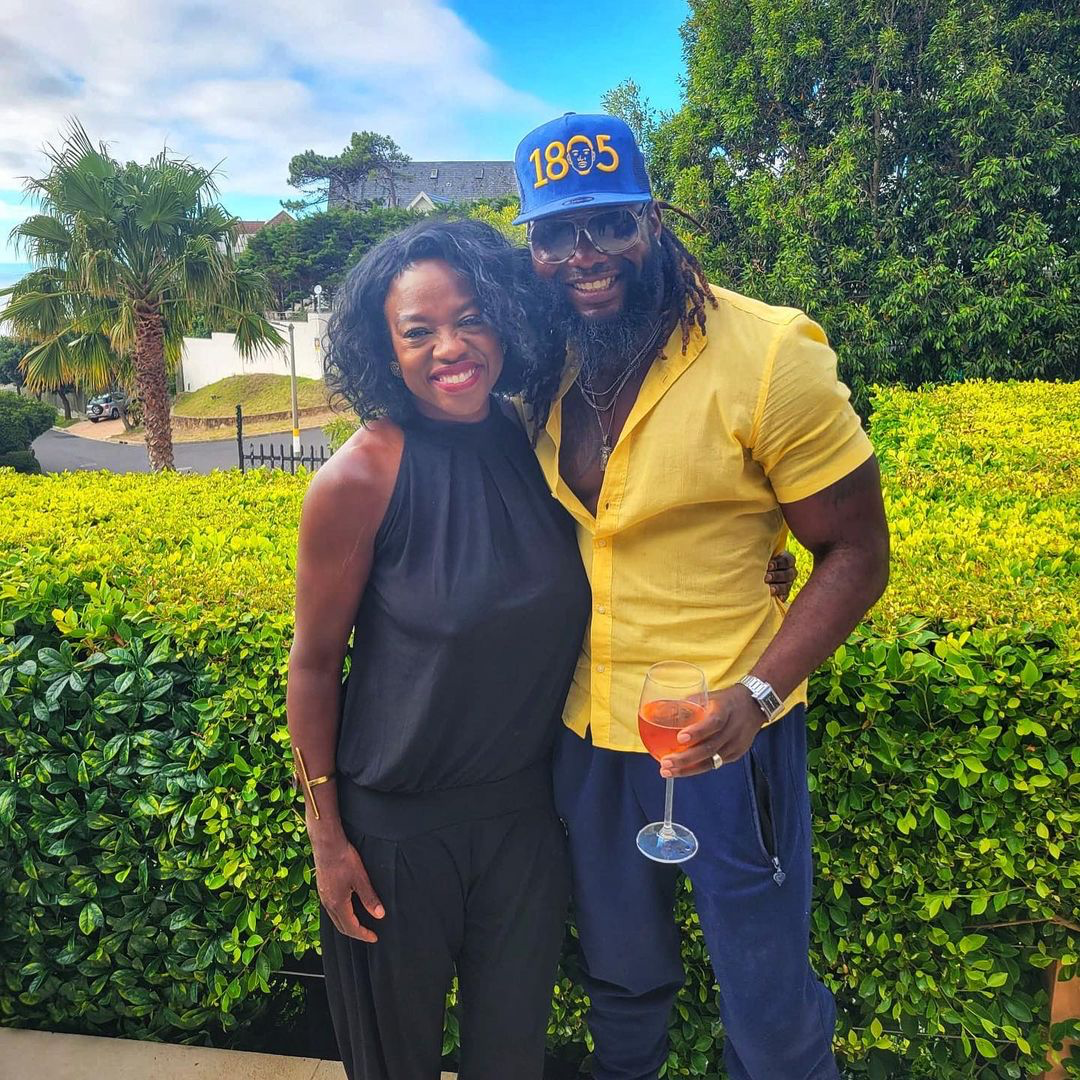
Jimmy Odukoya with Viola Davis
But this is studio execs, and to have the talent and people I’ve worked alongside, Viola Davis, John Boyega, Lashana Lynch, all great actors in their own right. Also, Angelique Kidjo, a Grammy award winner. To be surrounded by so much talent. And I think it’s just a celebration of my work as a Nollywood actor for all the time we’ve been here.
What was your reaction when you got the call?
I was excited. I was in disbelief. I couldn’t understand why. Especially when I found out that they had gone to five different countries and that they hadn’t filled this role. Again, just shouting about when God has something for you, it’s for you. But I was humbled. I was excited and a bit nervous because every time I get something big, I always
think about the responsibility that comes with it; that’s how my default setting is.
So it was a bit nerve-wracking, but I knew that I would not let it pass by, whatever it was, and I had no choice but to
rise to the occasion.
Following your Instagram during the making of the film, which we were not aware of at the time, you were in the gym a lot and even had to change your diet. What was that about?
For me working out has always been a lifestyle so even before the movie I was always working out, which definitely helped because they were looking for somebody of my stature. But once I got the role, as you said, I changed my diet. I had to adjust to being lean because I was used to being very big, and I liked that, but looking at my character, back then, they didn’t look like bodybuilders; they looked like lean machines.
So I changed my diet completely, cut out chicken, cut out meat, it was just vegetables for a long time, and then I started adding fish. For four or five months, I went straight vegetarian and then pescatarian. And so just mentally preparing myself for every time I go on set or listen to a certain type of music because I had to get to a certain type of
frame of mind.
And it was a struggle because I’m a big advocate against gender-based violence, but my character was fighting women. And so every time I go on set, and we have to fight, I’ll always hold back by default. They will be like, ‘throw her to the ground.’ And I’m like, ‘Okay, I’m sorry.’ We have to overcome those mental hiccups and just embody the character because it was something about his presence.
I wanted to leave a mark on the audience every time they saw him, people would ask,‘Who is this guy with an impending sense of evil in the world?’ To have that aura. I hope that it is translated. I’ve gotten great reviews. So
yeah.
What is the one thing that being a part of this production has taught you?
That when it’s your time, it’s your time. What God has for you is for you, and no one can stop it. Whenever God opens a door for you, no one can stop it. In the movie scene, what does this teach me?
First of all, impossibility is nothing. For the whole year leading up to that, I kept saying,” Listen, I’m going to Hollywood; I don’t know how it will happen. But see that Hollywood? That’s where I’m going. And everyone thought I was crazy. If you believe it and speak into manifestation, it will happen.
But the experience exposed me to a different level of acting regarding technicality, understanding masking and layering, and even fighting, stacking and stunts performance stuff. So it just opened me up to so much more. And working alongside talent like Viola changes you, even for yourself-confidence to be able to stand in the same room and have those dialogues and not feel like you have to be carried by another actor. It does something for your self-esteem. It was a great experience for me. Nigerians consume a lot of action movies.
Unfortunately, our film industry doesn’t do a lot of that genre. Why do you think that is?
I think it’s because they understand the technicality of making an action film. Action is hit or miss; you can’t hide. On the other hand, you can hide with drama. Drama can be subjective, but action is either a hit or a miss; there’s no in-between. But I feel like the more we’re consuming action, it forces us to do more; coupled with the introduction of Netflixes and the Amazons, we’re seeing more producers taking a stab at action movies.
You’re seeing King of Boys and Brotherhood. They are now veering into that sphere because they dare to push the
envelope. So I think that it is forcing us to develop structures to do it. And I think in the coming short future, that’s going to be a genre that many producers will attempt to do.
You shared a lot of scenes with the legendary Viola Davis. What was it like on set with her?
When I first saw Viola, I was like, wow. And I said to her, ‘sorry, ma’am, I call you Viola freaking Davis because you’re awesome.’ It was just great to see her, and having a conversation with her is still surreal. Every time we chat, I’m like, ‘it’s Viola Davis.’ I remember the scenes when we’re about to fight, and they say, ‘Viola first action, Jimmy
second action,’ and I’m thinking, ‘oh my God, I’m about to fight Viola Davis oya get in character.’
But it was just great. I’m thankful for the opportunity to work alongside greatness. I’m thankful for the access I have. I respected her before I knew her. You know, sometimes they say, ‘don’t meet your heroes or people that you look up to because you get disappointed.’ But I respect her so much more after meeting her because of the person that she
is, her work ethic, dedication, drive, and thought process. Fantastic.
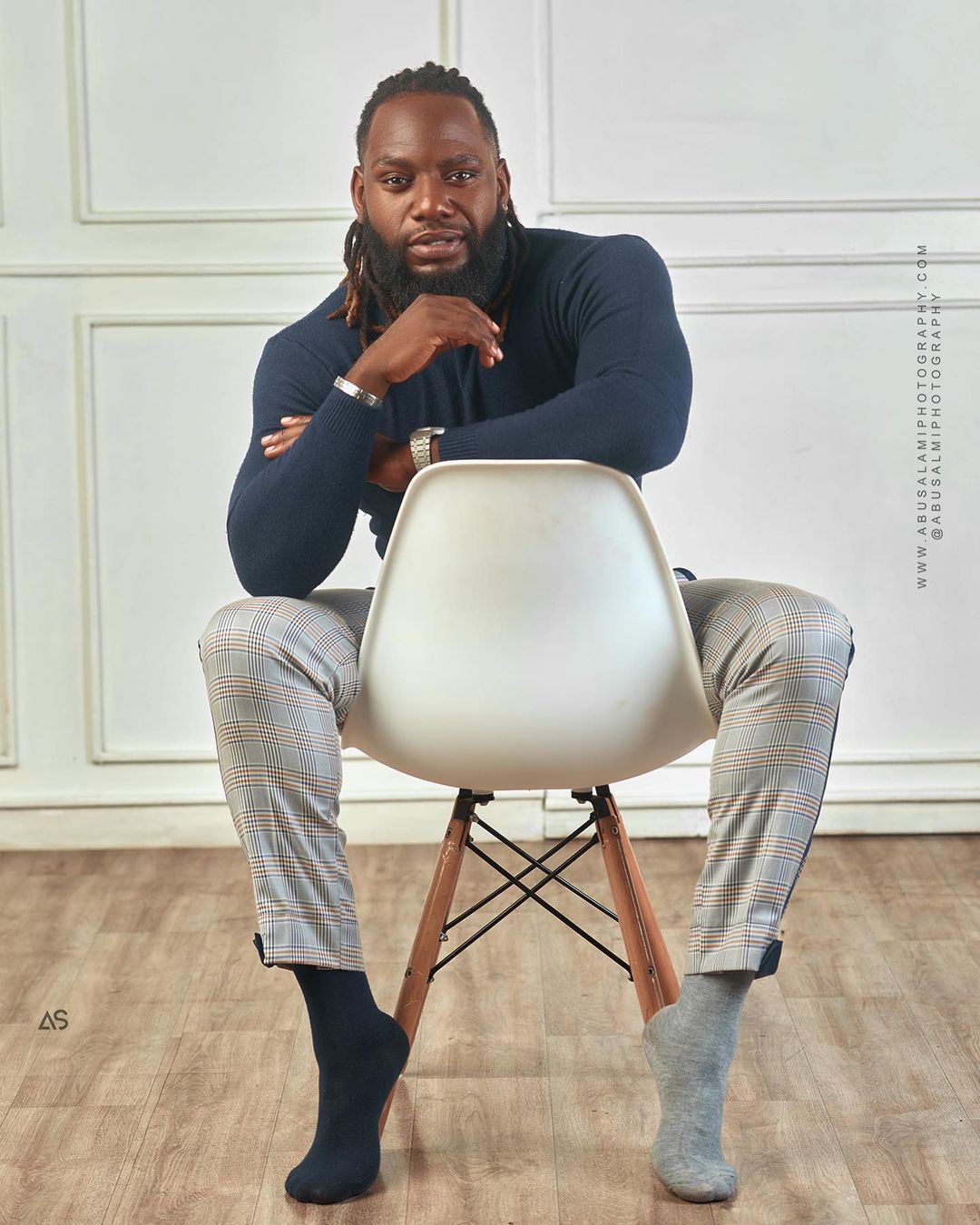
Jimmy Odukoya
You’ve seen first-hand how things are done in Hollywood. Obviously, to be better here in Nigeria, we have to compare both industries to see where we can improve. In what areas does Nollywood have to work on to attain international standards?
I mean, it goes to so many layers. First, obviously is structure. When I say that, I mean, Hollywood is going to South Africa to shoot most of its movies because of human capital, plus it costs them less. So most studios are going there. They should be coming here. We are the biggest African country on the continent, and we are the export to everything entertainment to the world, as far as Africa is concerned, but they don’t come here because we don’t have the structure.
We don’t have constant electricity, we don’t have controlled environments for shooting; there are so many things that go into play. So I think the first thing we have to be intentional about is creating the structure to develop these kinds of movies for the scale and scope of what it entails.
Kudos to Nigerians who find a way to do a lot with so little. The fact that we shoot, doing the things we do in this
structure, is amazing. So can you imagine the outcome if we had so much more? Secondly is just the intentionality about quality and excellence because most times, we’re pushing more about quantity versus quality.
We took five months to shoot this, which is quite short for a Hollywood movie, but it is that intentional attention to detail in everything from costume, to sound scoring, to cinematography, to props and weaponry, to script, everything was so intentional about telling a story, and nothing is glossed over, nothing is not important.
And so just that dedication to excellence, I think the difference between good and great is in the details. But it can be done; we are that good. They want what we have; our talent can hack it. It’s not like there’s Hollywood good and Nollywood good and poor.
No, I came from Nollywood, and I was able to deliver in Hollywood with the talent that I honed on this side of the
world, so it is possible and attainable. We are talented, and we can play on the big stage.
Self-identifies as a middle child between millennials and the gen Z, began writing as a 14 year-old. Born and raised in Lagos where he would go on to obtain a degree in the University of Lagos, he mainly draws inspiration from societal issues and the ills within. His "live and let live" mantra shapes his thought process as he writes about lifestyle from a place of empathy and emotional intelligence. When he is not writing, he is very invested in football and sociopolitical commentary on social media.


